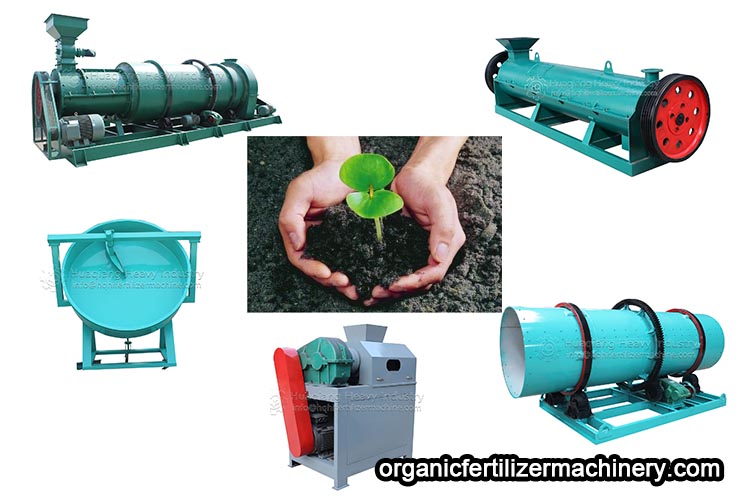In the wave of green agricultural development, organic fertilizer granulation machines, as crucial organic fertilizer machine, have become a core link connecting organic waste and farmland nutrients. Their core function is to process loose organic raw materials into granular organic fertilizer, achieving nutrient stabilization, standardization, and efficient utilization.

The core function of an organic fertilizer granulation machine is to solidify organic nutrients. While organic raw materials such as livestock manure, straw, and mushroom residue are rich in nitrogen, phosphorus, potassium, and trace elements after fermentation, they are in a loose powder form, presenting problems such as inconvenient transportation, easy wind scattering during application, and excessively rapid nutrient release. Granulators, through processes such as extrusion, rolling, or agglomeration, compress these loose raw materials into uniform granules, not only locking in nutrients and reducing volatilization loss but also extending the fertilizer release cycle, allowing crops to continuously absorb nutrients.
Simultaneously, this equipment enhances the practicality of organic fertilizer. Granular organic fertilizer is easy to measure, store, and apply mechanically, solving the pain points of high labor intensity and uneven application associated with traditional loose organic fertilizer, thus meeting the needs of large-scale agricultural production. By adjusting the ingredients during the granulation process, the nitrogen, phosphorus, and potassium ratios can be precisely controlled, producing specialized organic fertilizers tailored to the needs of different crops and soil types. This allows for customized nutrient supply, and it is a crucial step in achieving product standardization within the organic fertilizer production line.
In the ecological cycle, organic fertilizer granulation machines play a key role in the resource utilization of waste. They transform agricultural and livestock waste from "pollution sources" into "nutrient sources." Granulated organic fertilizer, when applied to the soil, improves soil structure, increases organic matter content, activates soil microorganisms, and alleviates problems such as soil compaction and decreased soil fertility caused by long-term chemical fertilizer use, thus contributing to sustainable agricultural development.
From family farms to large-scale organic fertilizer production enterprises, the application scenarios of granulation machines are constantly expanding. Their high efficiency and energy-saving characteristics lower the barrier to organic fertilizer production and promote the large-scale development of green agriculture, making them important equipment for protecting soil health and ensuring the quality and safety of agricultural products.